Commonwealth of homophobia: One billion live under anti-gay laws exported by Britain
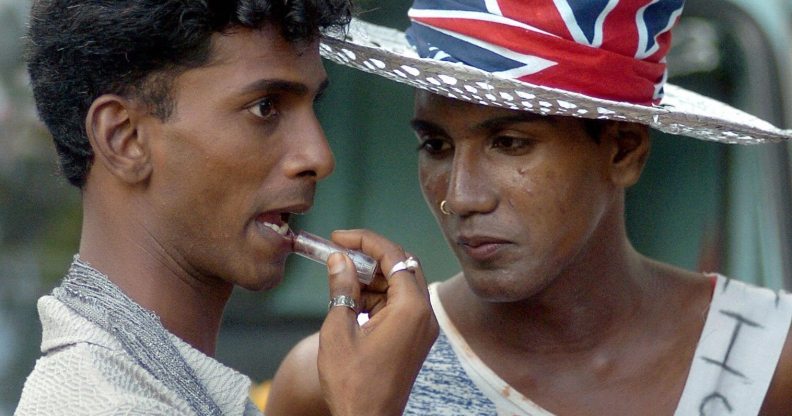
KOLKATA, INDIA: Indian members of the Integration Society, an organization committed to the defence of human rights and sexual freedom, apply make-up as they take part in a march entitled “Walk on the Rainbow” in Kolkata, 26 June 2005 to commemorate the anniversary of the 1969 Stonewall riots in New York, said to be the birth of the Gay Liberation Movement. Some hundred members took part in the march even as homosexuality in India stands criminalized because of a mid 19th century colonial law, as the section 377 of the Indian Penal Code enacted by the British in 1860 criminalizes what it calls, “sexual offences against the order of nature”. AFP PHOTO/DESHAKALYAN chowdhury (Photo credit should read DESHAKALYAN CHOWDHURY/AFP/Getty Images)
As royals, politicians and diplomats gather in London for the Commonwealth Heads of Government Meeting (CHOGM), millions of their LGBT citizens continue to suffer under oppressive discriminatory laws.
British colonists made laws outlawing homosexuality that reflected Britain’s own Victoria penal code, transplanting them on to every country they conquered.
While British politicians have largely shunned the antiquated laws, 36 or 53 Commonwealth countries retain their anti-gay laws to this day.
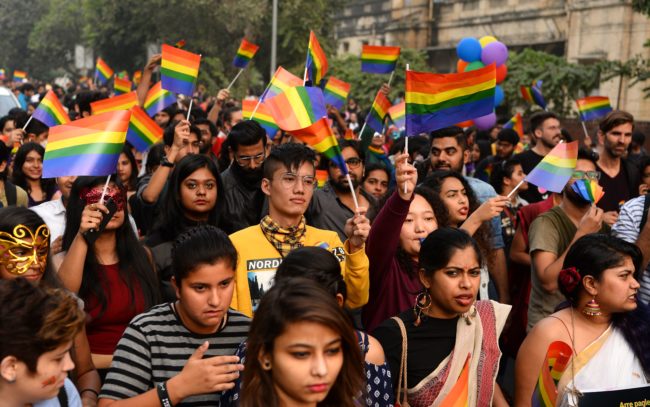
Indian members and supporters of the lesbian, gay, bisexual, transgender (LGBT) community (Getty)
Those nations account for a third of the world’s population and a quarter of the world’s land mass – millions of gay and lesbian people oppressed by the law.
Anti-gay laws originating in Britain aren’t an archaic part of history – they are an archaic part of the present.
From Barbados to Saint Lucia, Sri Lanka to Tonga, most member states continue to have oppressive rules on their LGBT citizens.
They include 14 years behind bars in Kenya and 20 years plus flogging in Malaysia. Bangladesh, Barbados, Guyana, Pakistan, Sierra Leone, Tanzania and Uganda have a maximum sentence of life imprisonment.
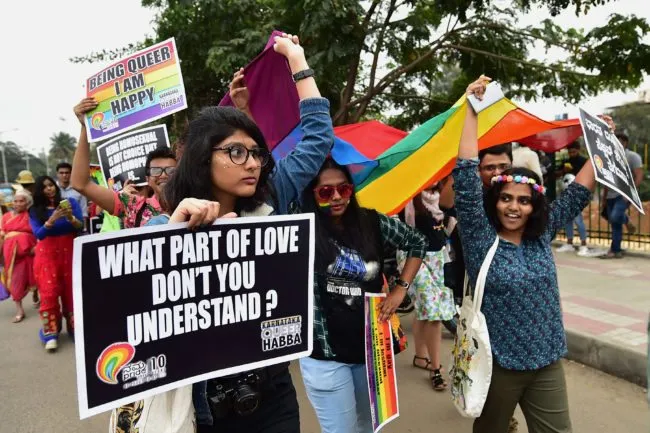
Indian LGBT rights activists take part in the Bengaluru Gay Pride March 2017 in Bangalore (Getty)
Homosexuality is punishable by death in member states Brunei and the northern part of Nigeria.
According to the 2007 Pew Global Attitudes Project, 97 percent of Nigerian residents believe that homosexuality is a way of life that society should not accept.
Bermuda, a Commonwealth member state, became the very first country in the world to revoke same-sex marriage.
India, the most populous nation in the Commonwealth, restored Colonial-era penal code outlawing homosexuality in 2013.
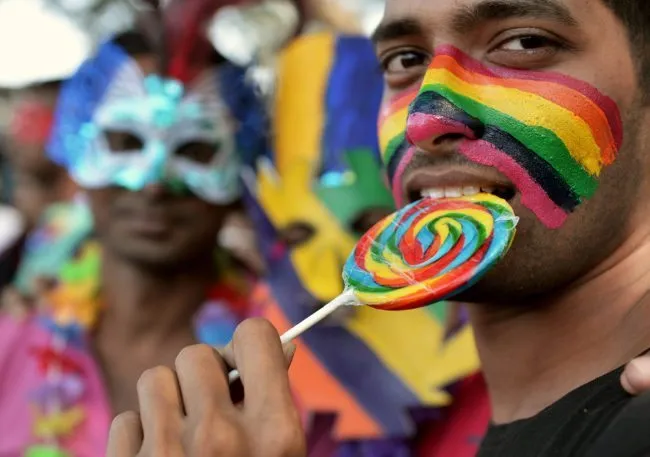
(Getty)
The country’s Supreme Court is currently debating dropping the punitive ban on gay sex, which has seen gay men and HIV-positive people oppressed by authorities.
In Malawi, a spokesman for the People’s Party, one of the main political parties in Malawi, said gay people are “worse than dogs” and should be killed.
There is good news, too. British leaders seem to be facing up to the situation.
Addressing heads of government at the summit, Mrs May said: “I am all too aware that these laws were often put in place by my own country. They were wrong then and they are wrong now.
“As the United Kingdom’s Prime Minister, I deeply regret the fact that such laws were introduced, and the legacy of discrimination, violence and even death that persists today.”
She added: “Recent years have brought progress. The three nations that have most recently decriminalised same-sex relationships are all Commonwealth members, and since the heads of government last met, the Commonwealth has agreed to accredit its first organisation for lesbian, gay, bisexual and transgender people.
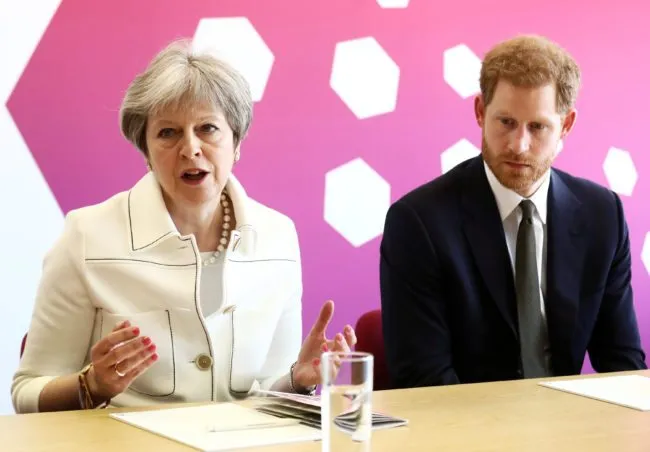
Britain’s Prime Minister Theresa May and Prince Harry attend a Commonwealth Heads of Government Meeting (Getty)
“Yet there remains much to do. Nobody should face discrimination or persecution because of who they are or who they love.”
“The UK stands ready to support any Commonwealth member wanting to reform outdated legislation that makes such discrimination possible because the world has changed,” May added.
The UK Government has also announced a £5m fund to help push for an end to anti-LGBT and anti-women’s rules in Commonwealth nations.
It comes a week after a supreme court case saw homosexuality finally decriminalised in Trinidad and Tobago.
The Gay and Lesbian Coalition of Kenya is currently pursuing a landmark court case for the decriminalisation of consensual same-sex sexual activity.

Baroness Scotland, Secretary-General of the Commonwealth
The Commonwealth Secretary-General, Baroness Scotland, has said leaders need to build a “consensus” on the issue of LGBT human rights.
She said: “What we have to accept is that this [decriminalising homosexuality] is something that will depend on consensus.
“We do not have the right or opportunity to force states, but we can start a really good conversation to work with them so they understand the economic issues in relations to human rights and make the change.
“The one thing I have to do is to build consensus and trust and I can hope it will be on the Commonwealth Agenda.”
Senior royals have undertaken a transformation in their approach to LGBT issues, with Prince Harry reportedly telling activists that they are on the right side of history campaigning for LGBT equality.
Prince William appeared on the cover of gay magazine Attitude to discuss tackling bullying and mental health challenges for LGBT young people.
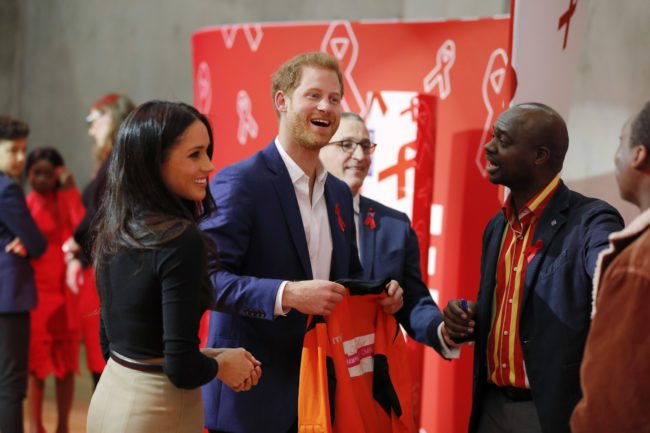
Prince Harry and Meghan Markle (Getty)
Former British PM David Cameron expressed his support for the Kaleidescope Trust, who campaign to overcome these anti-gay laws, saying: “It’s simply appalling how people can be treated — how their rights are trampled on and the prejudices and even the violence they suffer,” he said. “I want Britain to be a global beacon for reform”.
During the Queen’s reign, she’s signed away many anti-LGBT laws, including the introduction of same-sex marriage in England, Wales and Scotland.
Member states outlawing homosexuality include Cameroon, Ghana, Kenya, Swaziland (now known as eSwatini), Tanzania, Uganda, Zambia, Bangladesh, India, Malaysia, Pakistan, Antigua and Barbuda, Grenada, Guyana, Saint Kitts and Nevis, Saint Lucia, Saint Vincent and the Grenadines, Papua New Guinea, the Solomon Islands, Malawi, Namibia, Sierra Leone, Singapore, Sri Lanka, Barbados, Dominica, Jamaica, Kiribati and Tonga.

